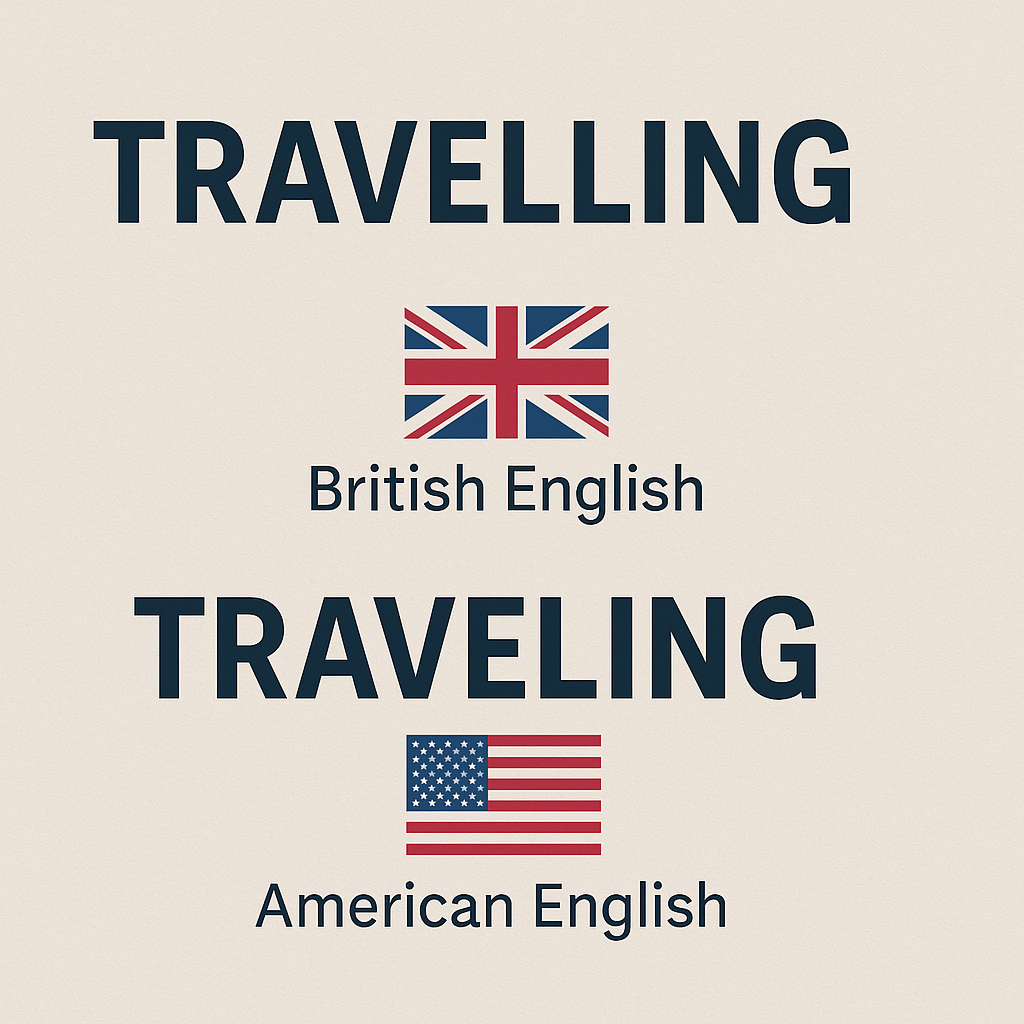Travelling vs Traveling

If you’ve ever written the word travelling vs traveling and paused to wonder if one was a typo, you’re not alone. These two forms look nearly identical so what’s the difference?
The answer lies in regional spelling conventions. Travelling is the standard spelling in British English, while traveling is used in American English. They both mean the same thing and function the same grammatically, but choosing the correct version depends on your audience and writing style.
This article will explain the difference between travelling vs traveling, provide grammar details, real-life examples, highlight common mistakes, and offer easy tips to remember which version to use. Whether you’re writing for an international audience or just want to improve your spelling consistency, this guide will help.
Grammatical Explanation of travelling vs traveling
The core difference between travelling vs traveling is based on regional English spelling conventions:
- Traveling is the preferred spelling in American English.
Example: I’m traveling to New York next week. - Travelling is the preferred spelling in British English, including places like the UK, Canada, and Australia.
Example: She is travelling around Europe this summer.
This difference also applies to related forms:
- American: traveler, traveling, traveled
- British: traveller, travelling, travelled
The reason? British English often doubles the final consonant when adding suffixes like “-ing” or “-ed” to words ending in a single vowel followed by a consonant.
So, in the travelling vs traveling debate, both are grammatically correct. you just need to match your spelling to your intended audience.
Real-Life Examples of travelling vs traveling
Correct Usage of “Traveling” (American English):
- She loves traveling across the United States.
- He is a frequent traveling consultant.
- We’ve been traveling for over ten hours.
Correct Usage of “Travelling” (British English):
- They are travelling through France and Spain.
- The travelling exhibition stops in London next week.
- I met a fellow traveller at the train station.
Incorrect Usage:
- He enjoys travelling to Texas every summer. (Wrong in American English)
- I’m traveling across Scotland for a month. (Wrong in British English if consistency is required)
To avoid confusion, maintain consistency with travelling or traveling throughout your document based on the spelling convention you’re following.
Common Mistakes
One common mistake with travelling vs traveling is mixing them up within the same piece of writing. This inconsistency can be distracting or appear careless, especially in formal or professional documents.
Another mistake is assuming one form is incorrect. In reality, both are correct but only within the right English variety.
Examples:
- Incorrect (US): I’ll be travelling from LA to Boston.
- Incorrect (UK): He’s traveling across the countryside.
Also, be cautious with related forms like traveller vs traveler and travelled vs traveled the same spelling rules apply.
When in doubt, check your document’s language setting or stick to one form consistently.
Memory Tips
Here’s a quick way to remember travelling vs traveling:
- Traveling = American English
Tip: “Traveling” has one “L” just like “USA” has one “S”.
Think: “Americans like things shorter. so one L is enough.” - Travelling = British English
Tip: British spellings often double consonants: travelling, cancelled, labelled.
Think: “In the UK, they like to double up!”
Mnemonic:
- One L for USA.
- Two Ls for UK.
Keep this in mind, and the travelling vs traveling decision becomes automatic when you’re writing for different audiences.
For more grammatical tips in our blog Spelling Confusion Grammar/Usage Confusion
Conclusion
In the case of travelling vs traveling, both are correct, it just depends on where your readers are. Use traveling for American English and travelling for British English. Stick to one version consistently to maintain clarity and professionalism in your writing.
Want to explore more British vs American spelling differences? Visit this Cambridge English spelling guide